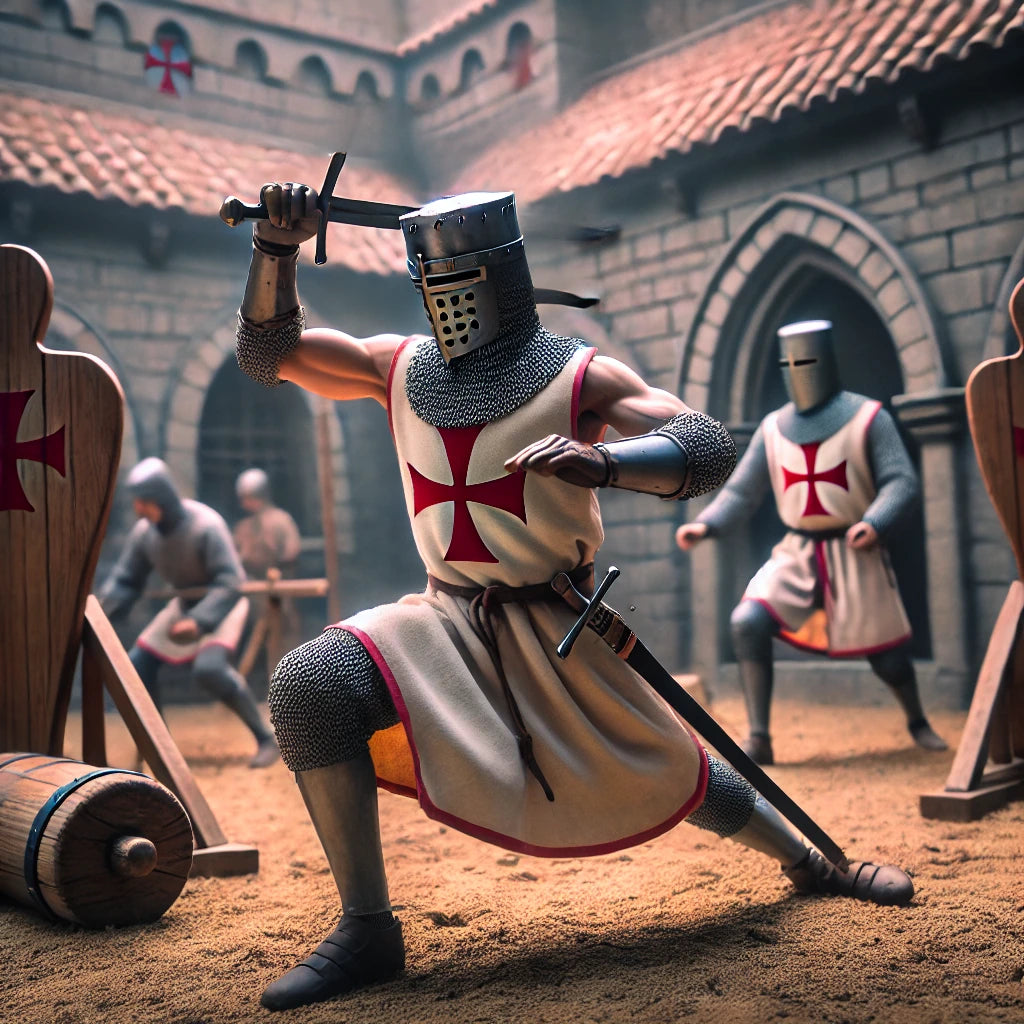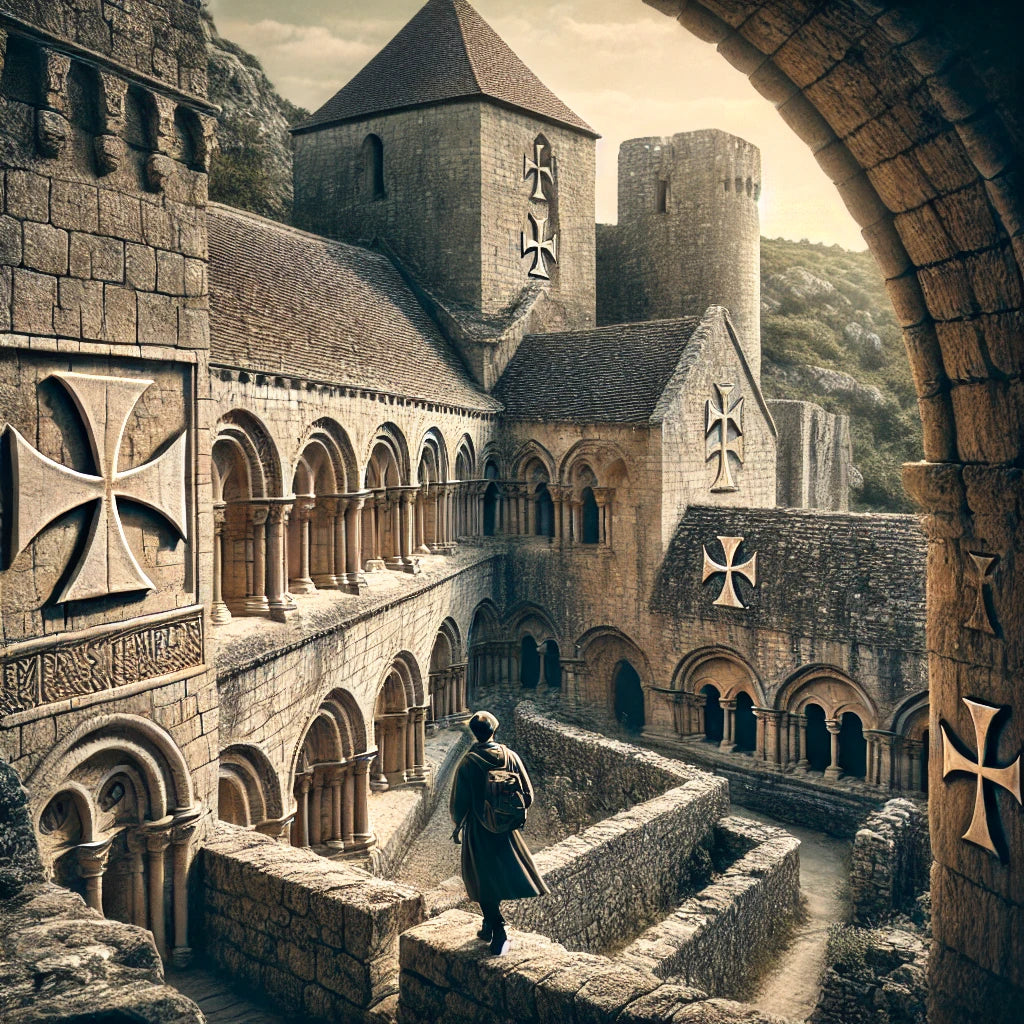The Knights Templar and Politics: A Powerful Force in the Medieval World
The Knights Templar were more than just a military order; they were a powerful political force that held substantial influence in the medieval world. Known for their military prowess during the Crusades, the Templars also wielded political power that stretched across kingdoms and influenced monarchs and church leaders alike. This unique combination of religious devotion, military strategy, and political influence made the Knights Templar one of the most intriguing and powerful entities of their time.
Origins of Templar Political Power
The Knights Templar were initially formed to protect Christian pilgrims traveling to the Holy Land. However, as they grew in size and resources, they became much more than guardians of travelers. Their allegiance to the Pope rather than to any specific king or emperor granted them a unique level of autonomy, enabling them to operate outside traditional feudal structures. This independence laid the foundation for their political power, allowing them to influence the affairs of multiple kingdoms.
![]()
Templar Influence on European Monarchs
The Templars had a vast network of properties and assets across Europe, which made them essential allies for kings and nobility who often relied on their resources and military assistance. As a wealthy order with access to gold and land, the Templars funded numerous political and military endeavors, often acting as bankers for European royalty. They provided financial services, such as loans and safekeeping, allowing them to directly influence royal decisions.
Many monarchs found themselves financially indebted to the Templars, a situation that strengthened the order's leverage and, in many cases, made them a politically untouchable force. This financial power allowed the Templars to gain favors, avoid taxation, and establish long-standing relationships with Europe’s most powerful figures.

The Templars and the Church: A Unique Relationship
As a religious order, the Templars reported directly to the Pope, placing them above most secular law and giving them a rare level of freedom. This unique position allowed them to act as representatives of the Church, negotiating treaties and exerting religious influence across Christian lands. The Templars’ allegiance to the Pope also meant they had the Church’s endorsement, which granted them greater legitimacy and respect in political spheres. However, their ties to the Church weren’t always smooth.
In the early years, their primary mission was fully aligned with the Church's goal of protecting Christian territories and spreading the faith. However, as they grew wealthier and more influential, tensions arose with both religious and secular leaders, who began to view the Templars’ wealth and autonomy with suspicion.

The Templars as Landowners and Administrators
Beyond their military role, the Templars became prominent landowners and administrators, managing vast estates across Europe and the Middle East. These lands, gifted by noble patrons or acquired through strategic investments, contributed greatly to the Templars’ wealth and influence. On these lands, the Templars set up agricultural systems, managed local populations, and even governed towns. Their properties often served as safe havens for pilgrims, soldiers, and locals, further embedding the Templars in the social and political fabric of Europe.
Templar estates generated considerable income, which they used to fund crusades, build fortresses, and expand their influence. The administration of these lands required a high degree of political skill, as Templar leaders negotiated with local lords, settled disputes, and maintained order.
Political Conflicts and the Decline of Templar Influence
The Templars’ power made them both allies and rivals of various European powers, leading to a series of political conflicts that eventually contributed to their downfall. One of the most significant conflicts arose with King Philip IV of France, who was heavily indebted to the Templars. Seeking to absolve his debts and consolidate his power, Philip initiated a campaign to discredit and dissolve the order, accusing them of heresy and other crimes.
Philip’s campaign against the Templars culminated in a dramatic series of arrests, trials, and the eventual execution of many Templar leaders, including Grand Master Jacques de Molay. In 1312, under immense political pressure from Philip, Pope Clement V officially disbanded the order. This marked the end of the Templars’ official political and military power, but their legacy continued, influencing both later historical events and popular culture.

The Templar Legacy in Modern Politics and Culture
While the Templars were officially disbanded, their legacy endures in modern politics, secret societies, and pop culture. Various groups have claimed Templar lineage, seeking to resurrect their ideals or utilize their symbols for political or ideological purposes. Today, the Templar cross and their lore remain powerful symbols associated with courage, loyalty, and mystique, resonating with those who admire the order’s blend of martial skill and religious devotion.
In addition to real-world influences, the Templars’ reputation has been immortalized in literature, film, and video games, where they are often portrayed as powerful, secretive figures engaged in shadowy political machinations. The continued fascination with the Templars underscores their enduring influence and the political power they once wielded in the medieval world.
![]()
Conclusion
The Knights Templar were a formidable political force, blending religious devotion with military might and political savvy. Their unique position allowed them to influence monarchs, accumulate wealth, and shape medieval politics in ways few other groups could match. From their early alliances with European nobility to the dramatic conflicts that led to their downfall, the Templars’ political legacy remains a testament to their enduring impact on history. Their story serves as a reminder of how religious and military organizations can shape political landscapes, leaving a legacy that transcends centuries.
Exploring the political history of the Knights Templar offers a deeper understanding of their true power and influence, shedding light on one of history’s most captivating orders.



































